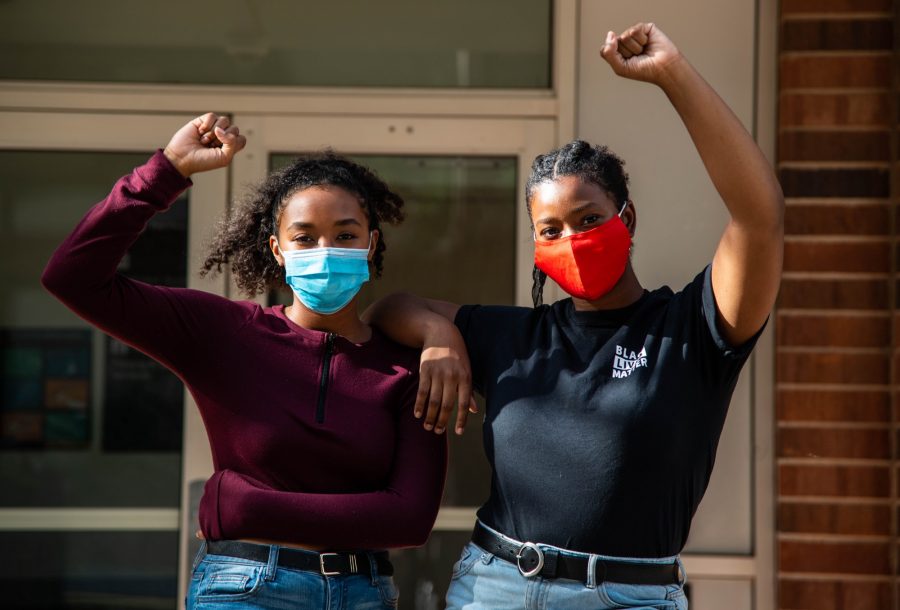After several months of efforts to reform and defund the University of Minnesota Police Department, student leaders are continuing to push for change.
“Cop Watch” training for students, a campus community police accountability council and meetings with University leadership have been in the works, among other efforts by student leaders, staff and faculty. University administration is working on creating a working group to address racism, as well as issues with policing and security at the University following the killing of George Floyd.
On June 22, the group Students for a Democratic Society met with University President Joan Gabel to discuss how administration can support and acknowledge their demands. An SDS press release from the meeting said the group felt the conversation was unproductive. Three days later, SDS hosted a sit-in in the backyard of Gabel’s mansion.
“The protests will continue until President Joan Gabel and the University of Minnesota decides that the time for action is now,” the press release read.
SDS continues to push demands to disarm and defund UMPD and form a Campus Civilian Accountability Council, a council of representatives from cultural groups and community members. The council would provide oversight of accountability measures, review of disarming UMPD and community engagement.
They are also focused on preparing students for interactions with UMPD this school year. On Aug. 5, SDS will host a “Cop Watch” training specifically for University students, a method for documenting and interacting with UMPD. In 1966, the Black Panther Party started cop watch training to monitor the Oakland Police Department, according to the Justice Committee in New York City.
“If the UMPD were to be defunded and disarmed, I think that would show me that the University is listening to student voices and cares about students needs and wants,” said Leah Spellman, a recent University graduate.
Spellman said she grew up in a predominantly white neighborhood and was always outspoken about the Black Lives Matter movement, but after the killing of George Floyd, her voice against racial injustice grew stronger.
In an emailed response to the Minnesota Daily, Gabel described the University’s efforts to address concerns with campus police.
“Before students can learn and thrive, they need to feel safe in every sense of the word. Anything that makes our students feels unsafe needs attention and the tragic murder of George Floyd has certainly catalyzed that call.”
According to Gabel’s statement, the Equity, Access, and Diversity Committee (EAD) recommended the creation of a working group of faculty, staff and students to address issues related to policing, racism and on-campus security. Gabel said she and UMPD Chief Matthew Clark are seeking advice on how to include the community in decisions.
“Shared governance has an important role in these conversations at the University and we rely on the voice of our community. Once we complete our external review in partnership with the EAD working group, we can take action knowing that the steps reflect both best practices and our community voice,” Gabel said in the emailed statement.
Some faculty, staff and members of the Board of Regents showed support for student demands by voicing concerns in meetings.
The Professionals and Administrators Senate sent an email with concerns about the Campus Safety Committee, a proposal authored by the Council of Graduate Students and Professional Student Government. The email highlighted a concern that the proposed committee would not incorporate the concerns of staff and student groups, as well as a lack of inclusivity and representation.
The University Senate discussed the proposal at a June 29 Senate meeting.
“You can’t say you are committed to dismantling institutionalized racism then lack any representation of BIPOC on your committee. We don’t want another powerless oversight committee,” said recent University graduate and SDS member Fanta Diallo at the meeting.
The Campus Safety Committee proposal did not pass.
“We are living in a pandemic, but we’ve been living in a larger pandemic where Black and Brown bodies have been continuously brutalized by police,” Diallo said in an interview with the Daily. “So that’s something that can’t wait anymore. It shouldn’t have to wait.”








